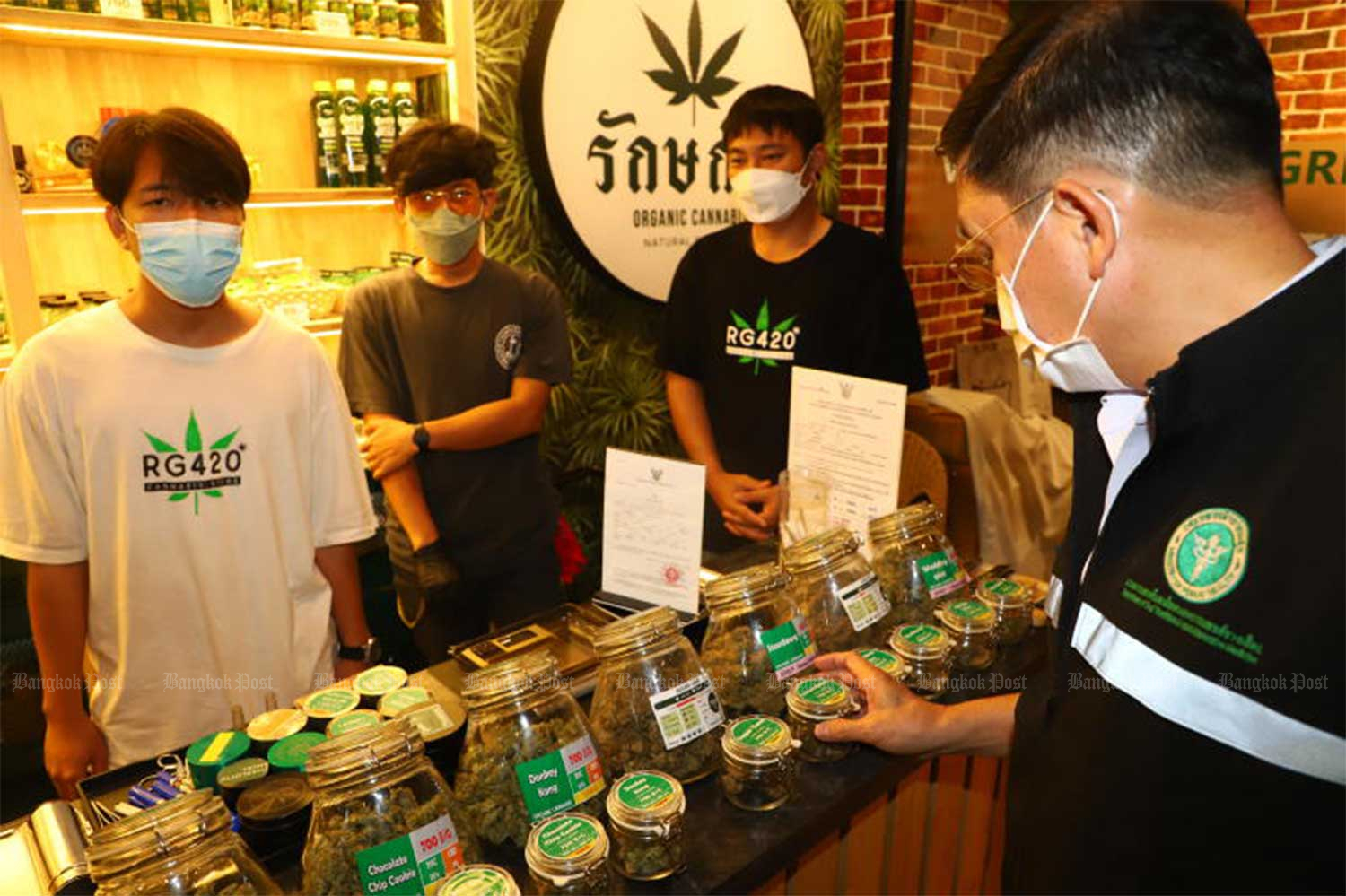
Thai nationals seeking to purchase cannabis buds will soon have to show their ID cards, with sales information recorded on a government database, according to the Department for the Development of Thai Traditional and Alternative Medicine (DTAM).
Thongchai Lertwilairattanapong, the department’s director-general, said he had signed the directive and it would take effect as soon as it is published in the Royal Gazette.
It is not known whether foreigners seeking to buy cannabis buds will have to show ID such as a passport. A recent health ministry publication, “10 Things Tourists Need to Know about Cannabis in Thailand”, makes no mention of any requirement.
The requirement is the latest in a series of ad hoc regulations issued to address questions that have arisen since cannabis was removed from the national narcotics list in June last year. A law to regulate the sector is still before Parliament and might not be passed before the House is dissolved ahead of the election later this year.
Under the new rule, Dr Thongchai said registered shops would be required to submit reports on sales and purchases to the department, which would hire a firm to write a computer program to track sales and purchases.
Registered vendors will be able to insert the ID cards of buyers into a device linked with the department’s system and input information regarding how many cannabis buds were purchased. If they fail to submit their reports to the department, their licences would be revoked, he said.
So far, more than 7,000 shops have sought permission to sell cannabis buds, said Dr Thongchai.
The main aim of cannabis decriminalisation, authorities have stressed, is to promote medicinal uses and create economic opportunities for people growing and processing the plant. But recreational use has exploded, which appears to have caught policymakers by surprise.
The DTAM is continuing to study the many potential applications of cannabis, marijuana and kratom, but for now they are not priority items on its “herbal champion” list. That list of 15 herbs contains three that are ready for the herbal development chain, while the remaining 12 including cannabis, marijuana and kratom are in the second tier, Dr Thongchai said.
There are many cannabis-based products being used for the same treatments but more studies are needed for the development of cannabis-based medicine, he added.
Some politicians and civic groups have been urging for cannabis, or some parts of the plant, to be placed back on the controlled narcotics list because they fear recreational use could get out of hand.
But doing so would create obstacles to development of medical applications, said Dr Thongchai.
Last month, the Ministry of Pubic Health said it would allow cannabis buds to be sold by more than 5,000 licensed vendors nationwide, with vendors’ and buyers’ information to be sent to the International Narcotics Control Board as part of an effort to regulate sales.
